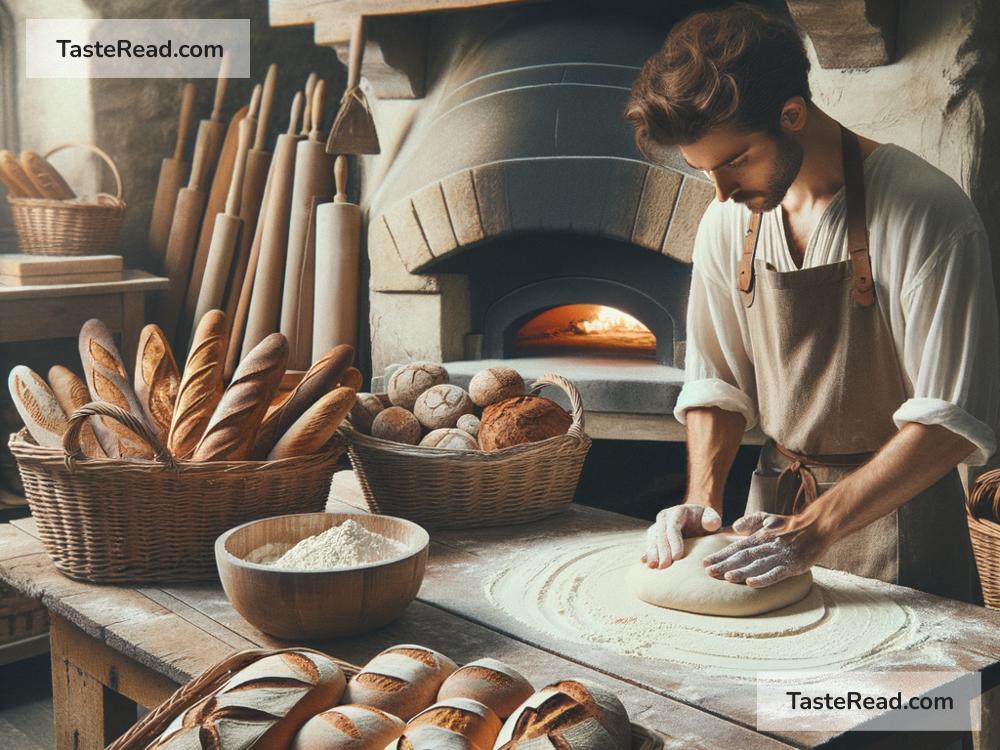Discovering the Artisan Bread-Making Traditions of Normandy
In the lush, green countryside of Normandy, France, there’s a tradition as rich as the butter the region is famous for. It’s not about the cows, though, or the apples that fall heavy from the trees. It’s about bread. Not just any bread, but artisan bread, made with methods that have been passed down through generations. Let’s take a journey into the heart of Normandy to discover the magic behind these bread-making traditions.
A Love Affair with Flour and Yeast
In Normandy, bread is not just food; it’s a symbol of community and family. For centuries, local bakers have woken up long before dawn to start mixing their dough, a process that seems simple – flour, water, yeast, and salt – but requires the kind of skill that only comes with time and passion. Here, making bread is an art, and the bakers are artists, each loaf a masterpiece.
The Traditional Normandy Loaf
While you might find a range of bread in Normandy, from crusty baguettes to hearty whole grain, one type stands out: the traditional Normandy loaf. This bread is special because of the ingredients that go into it, including a type of flour that is grown in the region’s rich, fertile soil, and sometimes even a dollop of the famous Normandy butter, which gives the crust its golden hue and flaky texture.
The Process
The process of making this artisan bread might seem similar to other bread-making methods, but there are a few key differences. First, the patience. The dough is allowed to rise slowly, often overnight. This slow fermentation is a crucial step, giving the bread its distinctive flavor and texture. Then there’s the baking, which is usually done in wood-fired ovens. These ovens give the bread a unique crust, impossible to replicate with modern electric or gas ovens.
A Community Affair
But artisan bread-making in Normandy is not just about the technique or the ingredients; it’s about the community. Bakers often source their flour from local mills, supporting the regional economy and ensuring their bread is as fresh as can be. Families have their preferred bakeries, often passed down through generations, and a visit to the bakery is a daily ritual for many.
Preserving Tradition
In today’s fast-paced world, where pre-packaged bread is readily available, you might wonder why these artisan bakers keep doing things the old-fashioned way. The answer is simple: tradition. There’s a deep sense of pride in continuing the practices of their ancestors, and a belief that some things, like the quality and taste of bread, should not be compromised.
Experience the Tradition
For travelers to Normandy, experiencing this bread-making tradition is a must. Many bakeries offer tours and bread-making workshops, where you can learn the basics of artisan bread making and, of course, taste the results. It’s not just about watching the process, but getting your hands floury, feeling the dough beneath your fingers, and sharing in the joy and pride of creating something beautiful and delicious.
A Taste that Transcends
What sets Normandy’s artisan bread apart is not just the skill that goes into making it, or even the tradition it represents. It’s the taste. There’s something about biting into a slice of bread, still warm from the oven, with a crust that crackles and a soft, airy interior, that transcends the ordinary. It’s a taste of place, of history, and of the love that goes into making it.
Conclusion
The artisan bread-making traditions of Normandy are a testament to the region’s dedication to quality, community, and heritage. In an era of mass production and instant gratification, these traditions remind us of the value of taking it slow, of doing things with care and passion. For the bakers of Normandy, bread is more than just sustenance. It’s a way of life. And for those lucky enough to experience it, it’s an unforgettable taste of rural France.


